INSIDE: ‘The fruit of the Spirit for kids’ shares a way to teach kids this concept without making it another list of virtues or rules. It includes a craft and a video to explain, as well as a review of a children’s picture book on the topic.
I live in central Alberta, Canada, and we’re still in the thick of winter. Every time I sit down in my van, I squeal from the cold touch of the seat on my thighs. There are days that my nose hairs freeze up simply from breathing. Jealous?
One thing I appreciate about winter is that I get to dream about my garden (no hard work involved!). We live in a fairly small house in the middle of a suburb, but that hasn’t stopped me from turning my front (and back) yard into a lush, fruitful garden.
Each year I am delighted by the apples, grapes, strawberries, apricots, haskaps, raspberries, and cherries that my garden grows, seemingly on their own.
I don’t make the fruit grow. I simply plant the trees and bushes, do a little pruning and fertilizing, and enjoy the rewards.
I can’t force the trees to bloom or the bees to pollinate the flowers. I can’t hurry the process of fruitfulness.
Likewise, I can’t hurry the growth of the fruit of Spirit in my life. I can plant myself in the Living Water, but I can’t force myself to become more joyful, peaceful, or patient.
Neither can we force this fruit in our children. I find it strange that we try to lecture our kids into changing when the Bible clearly tells us that these virtues come from a life lived with God. We can prune and fertilize, but God is the one that does the work of true heart-change.
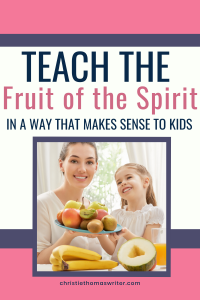
The Fruit of The Spirit For Kids
This week I made a little video for you about how to teach the fruit of the Spirit to our kids. It’s short, it’s sweet, and I even do a tree impression. Watch it here, or read the transcript below!
If you enjoyed this video, make sure you subscribe on Youtube or Like my Facebook page so you’ll get notifications when new videos are up! Each one contains short, sweet, hope-filled ideas for spiritually parenting our kids.
You can find this book, “Maybe God is Like That Too” by Jennifer Grant on Amazon.

If you love the books I suggest, you can download my free list of the 10 best Christian picture books!
NEW: FAMILY DEVOTIONAL BOOK ON THE FRUIT OF THE SPIRIT!
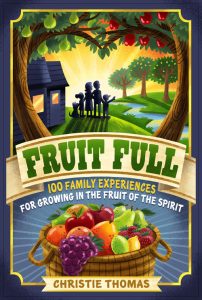
The Fruit of the Spirit for Kids ACTIVITY
“I did a little thing with the fruit of the Spirit with my kids a couple of years ago but it was so hard for me to explain to them. So often the studies I looked at (even the adult ones) came across as “do this and this” to be more loving, or to have more joy, or to be more kind. They all seemed to bypass what you were talking about…being planted by the stream of living water! So, attached are some pictures of how our study started off. Since we grow a garden, we had at least a little bit to relate to. We talked about planting seeds, having good soil, and adding water and sunshine. This is what we need to bear fruit!” – Sarah
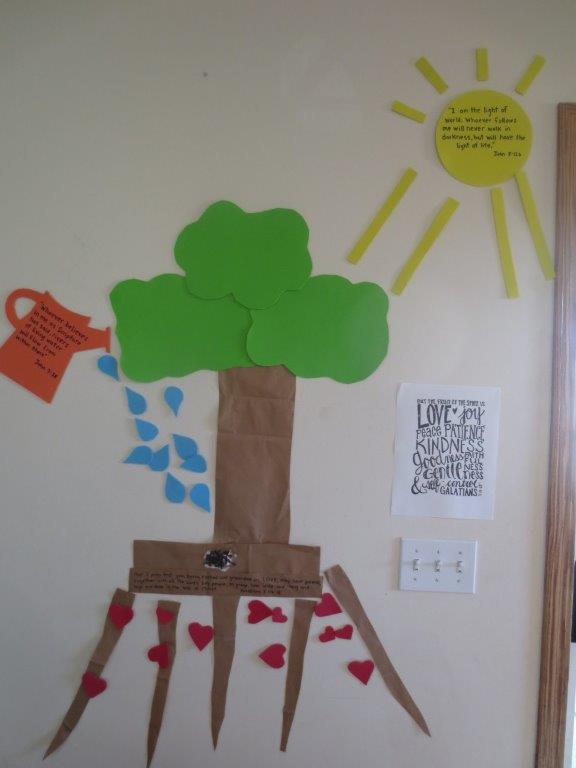
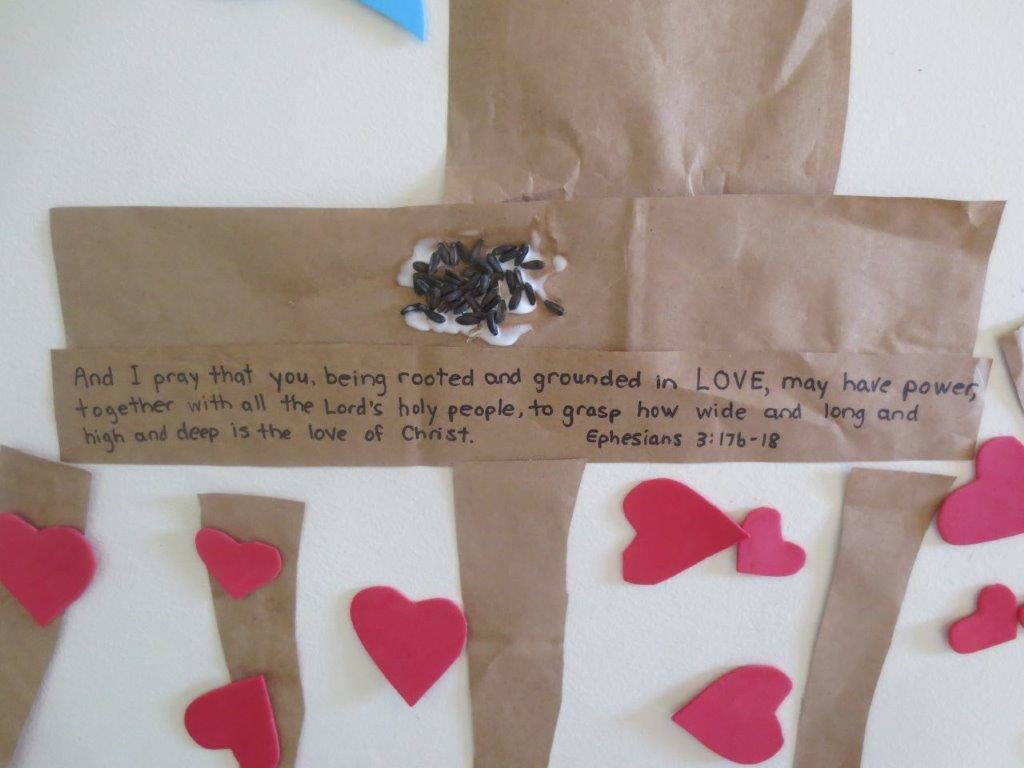

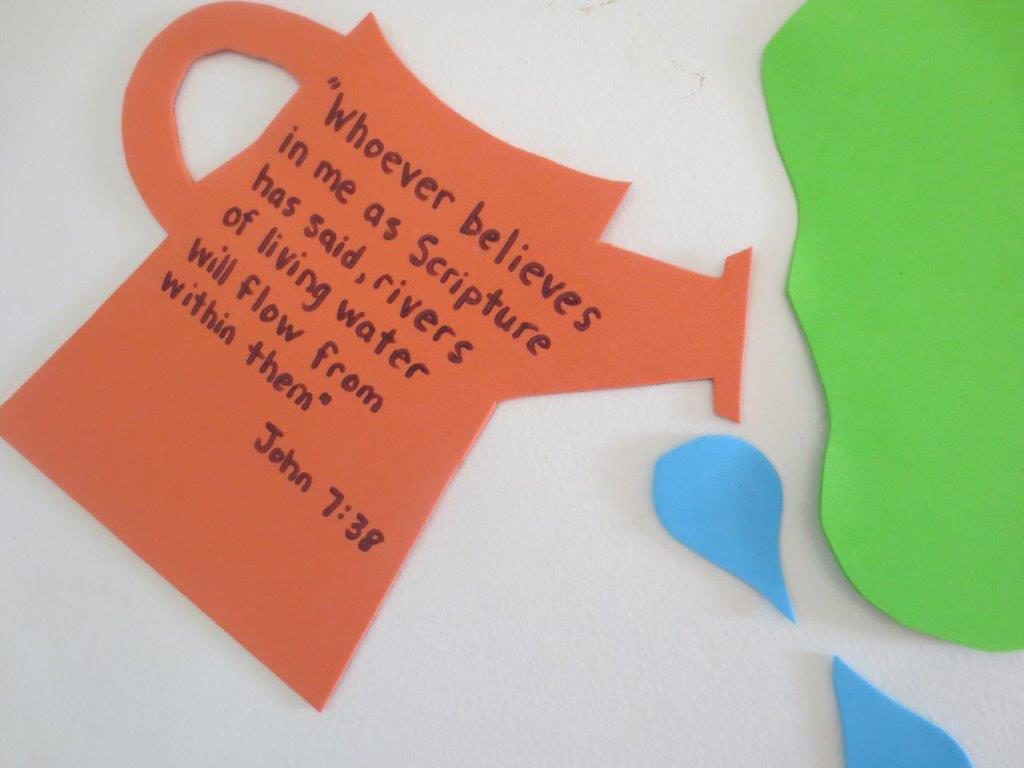
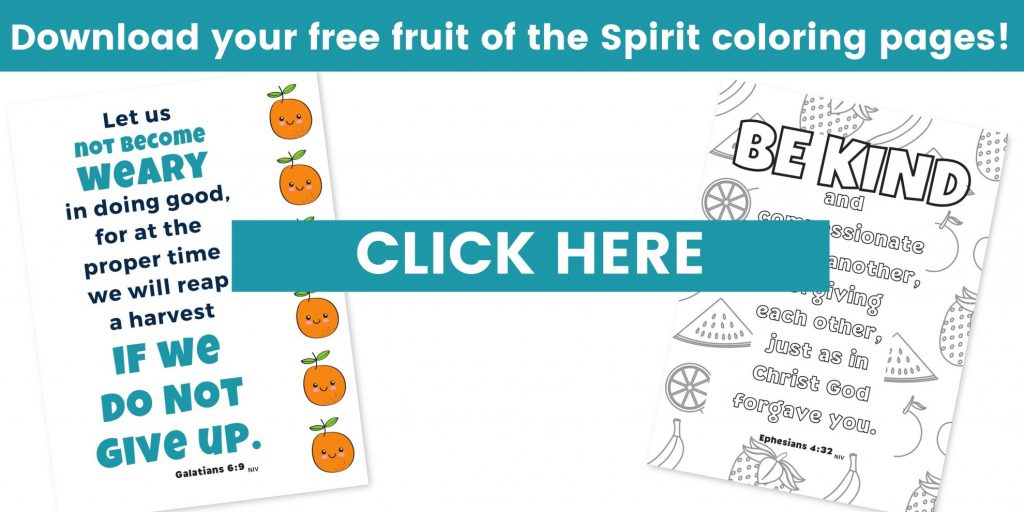
Video Transcript:
When you think of the fruit of the Spirit from the Bible, do you think of a plateful of juicy, literal fruit? Me too.
And for so long that’s exactly how we have presented it to kids. But I think there’s a better way.
Recently I’ve been thinking a lot about the fruit of the Spirit. You know, from Galatians 5, where Paul is contrasting a life lived according to our fleshly desires vs a life led by the Holy Spirit.
Usually, we talk about the fruits of the Spirit as if they were actual fruit.
I can’t count the number of kids songs and posters and curriculums that liken each of the virtues mentioned by Paul to apples and bananas and grapes. ? ? ?
It’s always struck me as odd that we focus so much on physical fruit, because the concept of fruit growing in our lives is so metaphorical.
Even most adults probably don’t fully understand the idea of “fruit of the Spirit,” because we aren’t nearly as connected to the land and agriculture as the ancient people this letter was written to.
Kids under the age of 8 cannot understand metaphor. No matter how smart or advanced your child is, they can’t grasp the idea of “___ is like ____” because their minds think concretely. Abstract thinking, comparison, similes, and metaphors are something that develops later on in childhood. Even then, abstract thinking develops slowly.
Now, that doesn’t mean we have to ditch every abstract concept in the Bible until our kids are 8, but there are better ways to teach the fruit of the Spirit for kids. If you have an older child and want to explain this concept of “fruit,” here’s a suggestion (but bear in mind that they almost need a background in botany in order to understand it).
This is how I explained it to my son the other night.
My life is like a tree.
I want to be planted by a river, not in the desert.
Having my roots grow into the river will help me grow big and strong, and when I grow big and strong, I will also grow good fruit.
The river is like God’s love.
When I let myself suck up God’s love, I grow big and strong in my heart and soul. Then my life will start to grow good fruit.
This fruit isn’t like fruit you eat, but something that can only grow in my life when I’m so full of God’s love.
It comes popping out of me and looks like love, joy, peace, patience, kindness, goodness, faithfulness, gentleness and self-control.
Bear in mind that he’s almost 9, and is on the cusp of being able to actually understand some metaphors. Children any younger than this won’t get it at all (see the note above).
The problem is that this word picture is so far beyond the concrete-thinking done by young kids, that they usually end up confused.
Either they simply memorize the list with no real change occurring in their lives or…they just get hungry!
We tell them they need to show the fruits of the Spirit but we don’t actually plant them by living water.
What Paul is talking about here is that when we plant ourselves deep into the life of God, into the love of God, our lives look drastically different than those of the rest of the world.
There are other ways to illustrate this, and that is why I like a book called “Maybe God is Like That Too” by Jennifer Grant.
This incredible picture book takes the concept of physical fruit right out, and focuses instead on what love, joy, peace, etc actually look like in our lives.
It’s probably one of my favourite concept books of all time, because it takes an idea that’s been done to death and reinvents it in a way that is much more understandable to kids.
In fact, one of the things I like best about this book is that it takes the agricultural metaphor right out. The main character is a boy who lives with his grandma in an apartment in a big city. Definitely not agricultural.
Because really, what does joy look like? An old song from Sunday School would tell me that joy is like a banana.
Really??
Joy isn’t like a banana. But it IS like the feeling of flying high on a swing at recess.
What does love look like? Again, an old song would tell me that love is like an orange.
Really??
Love is not like an orange. But it IS like the feeling of a special hug from Grandma. Those are things that kids can identify with, and it makes this list of virtues much more than a simple list to be memorized.
It makes the list into ideas that a child can actually see lived out, and can see in his own life too.
Grandma tells the boy this: “Whenever you see love, joy, and peace, God is there.”
Frankly, I’d rather see true life change in my kids than have them simply memorize lists of virtues. I want them to truly understand the difference that God makes in our lives, rather than be confused by an ancient metaphor. And if we need to throw out the fruit for a bit, let’s do it.
You can find this book, “Maybe God is Like That Too” by Jennifer Grant on Amazon or at your local library! (If your library doesn’t carry it, you can always ask them to order it!)
If you love the fruit of the Spirit, download my free verse-based coloring sheets and posters!





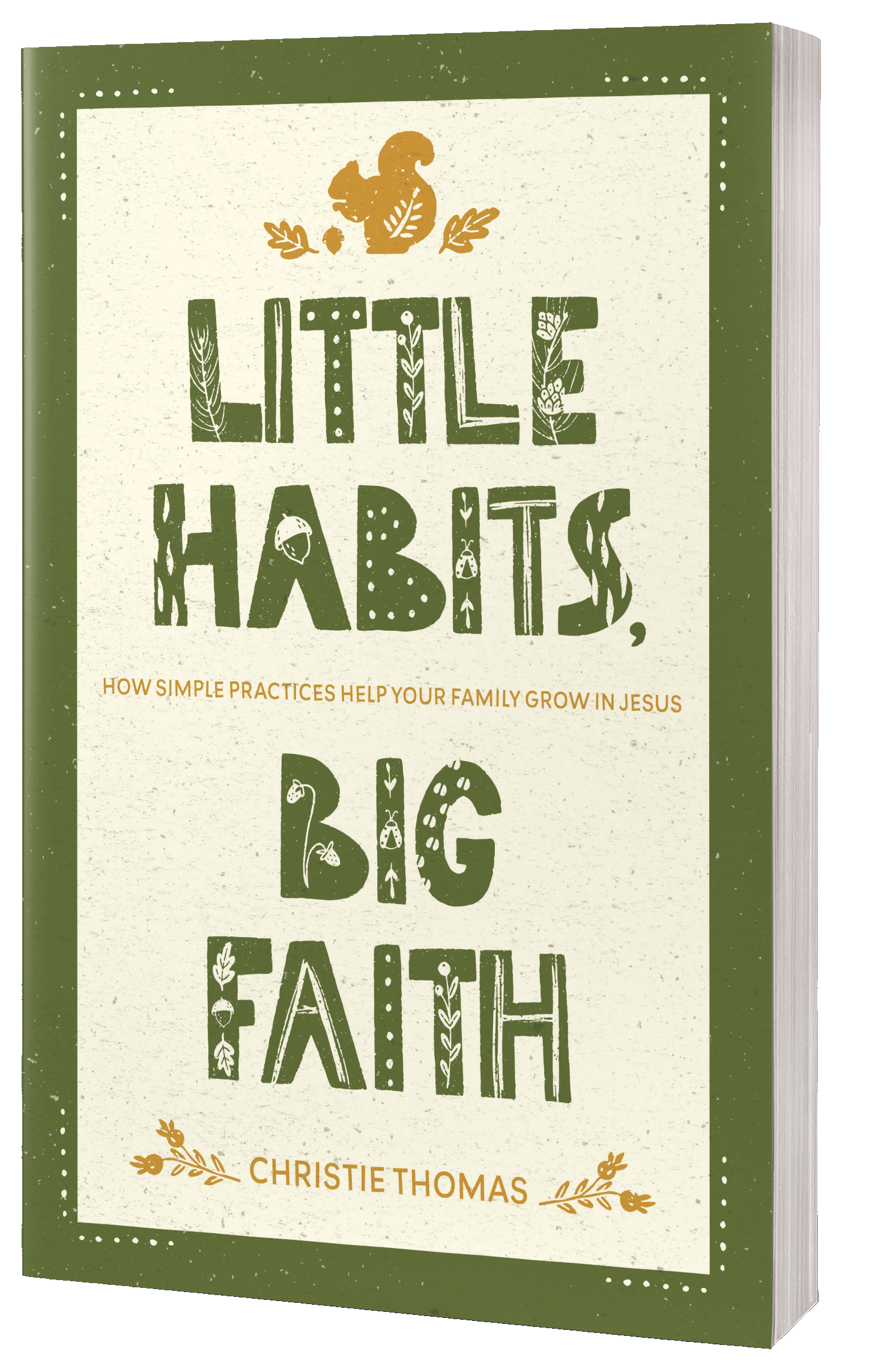
Thank you so much for this. What a great video to explain the fruit of the spirit. We are in Uganda mentoring at a secondary school so this is a super helpful tool.
Thank you! I’m glad it was helpful. 🙂
I have never understood the use of fruit to explain the fruit of the spirit. I try to teach my class the concept of what each means. The children all know that love is my favorite because I feel if you have love most of the rest will fall in line. If you spread joy then it is like the laughter of a baby. Everyone smiles when they see a baby laughing. It is infectious! I loved the way you explained it and will definitely be using it in my class. Thank you so much.
You’re right – the fruit metaphor really only works for people who can understand metaphors! haha.
I bought this book a few years ago and absolutely love it for my grandkids. My grandson especially identifies with the Joy of swinging! A terrific, practical approach to the fruits of the Spirit!
That’s one of my favorite pages too!
The “Church Mouse” a newsletter included is a column “The Children’s Corner” which helps parents teach their children Christian values and the Bible., I was led to your post and would like to use it in my August edition. In June several parables were presented, ‘The Parable of the Sower’ was one of them. This will help extend the idea of what is being sowed.
That sounds perfect!